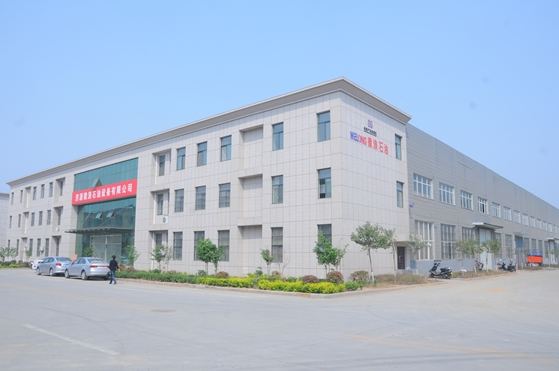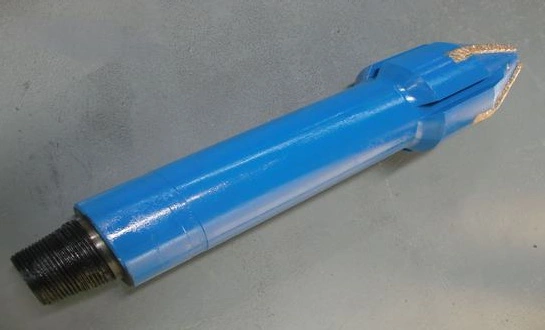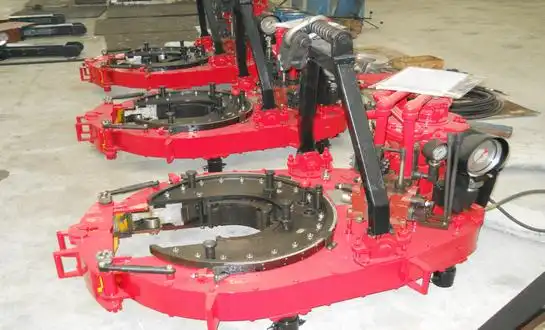Factors to Consider When Deciding Between Renting and Buying Drilling Hoses
Duration and Frequency of the Project
When deciding whether to purchase or rent drilling hoses, the duration and frequency of your drilling initiatives are crucial factors. Renting can be more cost-effective for temporary or sporadic initiatives, providing flexibility without the long-term commitment. However, buying own hoses could end as being more economical in the long run if you're drilling continuously or have a consistent flow of projects. To make an informed choice, take into account your operational procedures and project flow.
Financial and Budgetary Considerations
The decision to buy or rent is frequently influenced by financial considerations. Because renting involves less money up front, it may be a good option for businesses with tight budgets or those who would rather spend their money elsewhere. When depreciation and possible resale value are taken into account, purchasing might result in significant long-term savings even though it requires a bigger initial expenditure. Examine the financial status of your business, taking into account both short-term expenses and long-term financial effects.
Requirements for Storage and Maintenance
Additional duties associated with owning drilling hoses include upkeep, repair, and storage. These elements necessitate specialized resources and may raise the total cost of ownership. This burden is lessened by the maintenance services that are frequently included with rentals. However, purchasing might be more beneficial if you have the resources and know-how to properly maintain and store equipment. When choosing, consider how well-equipped your business is to manage these new duties.
Advantages and Disadvantages of Renting Drilling Hoses
Benefits of Renting
There are various benefits to renting drilling hoses. First of all, it makes the newest technology accessible without requiring significant upfront costs. This is especially helpful in a field where new equipment is constantly being developed. Second, renting gives businesses flexibility by enabling them to modify their inventory of equipment in accordance with project needs. Finally, maintenance and repair services are frequently included in rental agreements, which eases the workload for your operating staff and guarantees equipment dependability.

Drawbacks of Renting
Although renting equipment has many advantages, there are also some significant disadvantages. The recurring rental costs can mount up over time and, in certain situations, may even be more expensive than buying the equipment altogether. Additionally, rented equipment might not always be accessible when needed, which could cause delays in the project. Additionally, there is less room for customisation; hoses that are rented, for example, might not be able to satisfy certain operating requirements as well as equipment that has been bought and modified to match particular needs. This lack of control may affect the effectiveness of some jobs as well as their overall success.
Situations in Which Renting Is Best
In some circumstances, renting drilling hoses is quite beneficial. For example, renting offers the flexibility required for exploratory drilling projects whose duration is unclear. It's also perfect for businesses trying new drilling methods or breaking into new industries because it lets them determine whether the equipment is suitable without committing to a long-term project. Renting may be more practical for startups or businesses with little funding, allowing them to focus on other crucial aspects of their business.
Benefits and Drawbacks of Buying Drilling Hoses
Benefits of Buying
Purchasing drilling hoses has a number of long-term advantages. Complete control over the equipment is granted by ownership, enabling customisation to satisfy particular operational requirements. Over time, it also leads to decreased expenditures, particularly for businesses that often drill. One way to look at owned equipment is as an asset that could help the company's balance sheet. Additionally, keeping hoses close to hand can improve operating effectiveness and save downtime related to equipment acquisition.
The drawbacks of purchasing
Although buying brings advantages, there are drawbacks as well. The substantial upfront expense may put a burden on a company's resources, especially for smaller businesses or those with less funding. Equipment ownership also entails full responsibility for upkeep, repairs, and storage, which can increase operational complexity and expenses. Additionally, owned equipment may become obsolete as newer, more efficient models hit the market due to technological obsolescence.
When It Makes Sense to Buy
For businesses with consistent, long-term drilling activities, buying drilling hoses is frequently the best option. Businesses with specific drilling needs that call for specialized equipment will especially benefit from it. Businesses with the resources to make significant capital expenditures and the infrastructure to properly maintain and store equipment ought to think about purchasing. Additionally, ownership can offer the dependability and accessibility required to sustain operational efficiency if your operations depend on continuous access to particular kinds of drilling hoses.
In conclusion, a thorough examination of your business's unique requirements, financial status, and operational plan is necessary to determine whether to purchase or rent drilling hoses. In the oil and gas sector, each option has a role, and the choice you choose can have a big impact on the success of your project and the overall effectiveness of your company. For more information on high-quality drilling hoses and expert advice on which option might be best for your operations, don't hesitate to contact us at oiltools15@welongpost.com. Our team is ready to help you make the most informed decision for your drilling equipment needs.





